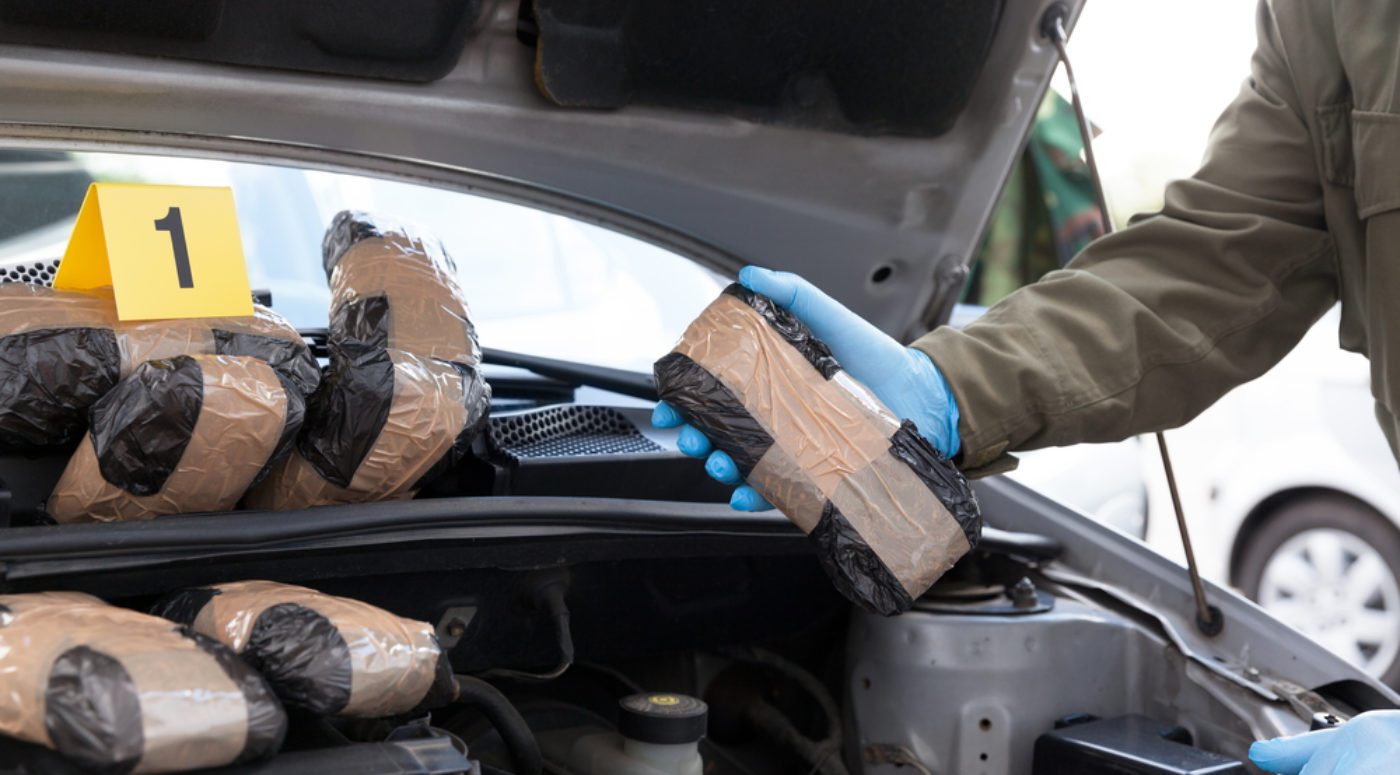

Facing an accusation of importing drugs is a daunting and stressful experience. The law in England and Wales treats drug importation as a very serious offence, and the consequences can be severe. However, not every case results in an immediate prison sentence. One question many people ask is whether it is possible to receive a suspended sentence for importation of drugs. In this article, we will explain what importation of drugs means, the typical sentences, what a suspended sentence is, and the factors that influence whether a suspended sentence is possible. We will also offer practical advice on how to improve your chances of receiving a suspended sentence and where to find further support.
What is importation of drugs?
Importation of drugs refers to the act of bringing controlled substances into the United Kingdom from abroad. This can include carrying drugs in your luggage, sending them through the post, or arranging for them to be brought in by someone else. The law covers all types of controlled drugs, from so-called ‘Class A’ drugs such as heroin and cocaine, to ‘Class B’ and ‘Class C’ drugs like cannabis and certain prescription medications.
The relevant law is primarily found in the Misuse of Drugs Act 1971 and the Customs and Excise Management Act 1979. Under these laws, it is a criminal offence to import controlled drugs without proper authorisation. The offence can be committed even if you did not physically carry the drugs yourself, as long as you were involved in arranging or facilitating their importation.
Ignorance of the law is not a defence. Even if you did not realise that what you were doing was illegal, you can still be prosecuted if you were knowingly involved in bringing drugs into the country.
What are the typical sentences for importation of drugs?
Sentences for drug importation offences vary widely, depending on the type and quantity of drugs involved, your role in the offence, and your personal circumstances. The courts in England and Wales use sentencing guidelines published by the Sentencing Council to determine the appropriate sentence in each case.
For importation of Class A drugs (such as heroin, cocaine, ecstasy, or methamphetamine), the starting point is usually a substantial prison sentence. The maximum sentence is life imprisonment, although this is reserved for the most serious cases. For Class B and Class C drugs, the maximum sentences are 14 years and 5 years respectively, but again, the actual sentence will depend on the facts of the case.
The guidelines divide offences into categories based on the quantity of drugs and the offender’s role (for example, whether you were a leading organiser, a significant participant, or a lesser participant). Sentences can range from a community order for the least serious cases involving small amounts and minor roles, up to many years in prison for large-scale importation or leading roles.
In practice, most people convicted of importing even small amounts of Class A drugs will face a custodial sentence. However, there are exceptions, and the court has discretion to impose a suspended sentence in certain circumstances.
What is a suspended sentence and how does it apply to these cases?
A suspended sentence is a type of custodial sentence that does not take immediate effect. Instead, the court imposes a prison sentence but suspends it for a specified period (usually between six months and two years). During this time, you are allowed to remain in the community, provided you comply with certain conditions set by the court. If you breach these conditions or commit another offence during the suspension period, you can be brought back to court and the original prison sentence can be activated, meaning you will have to serve it in custody.
Suspended sentences are intended for cases where the court believes that the offence is serious enough to warrant a prison sentence, but that there are strong reasons why immediate custody is not necessary. The court will consider factors such as your personal circumstances, the impact of imprisonment on your dependants, your previous good character, and whether you have shown genuine remorse.
In the context of drug importation, suspended sentences are relatively rare, especially for Class A drugs. However, they are not impossible, particularly for less serious cases or where there are exceptional mitigating circumstances.
Is a suspended sentence possible for importation of drugs?
The short answer is yes, but only in limited circumstances. The Sentencing Council’s guidelines state that a suspended sentence can be considered where the custodial term is less than two years and where the court is satisfied that the offence does not require immediate custody.
For importation of Class A drugs, the starting point for even the lowest category offences is usually a custodial sentence of at least a few years. However, if the quantity is very small, your role was minor, and there are strong mitigating factors, the court may impose a shorter sentence that can be suspended.
For Class B and Class C drugs, the likelihood of a suspended sentence is higher, especially for first-time offenders, those with a minor role, or where the importation was not for commercial gain.
What factors influence the court’s decision on a suspended sentence for importation of drugs?
The court will consider a range of factors when deciding whether to suspend a sentence for drug importation. These include:
- The quantity and type of drugs: Larger quantities and more dangerous drugs (such as heroin or cocaine) are more likely to result in immediate custody. Small amounts of less harmful drugs may attract more leniency.
- Your role in the offence: The court will assess whether you were a leading organiser, a significant participant, or a lesser participant. Those who played a minor role, perhaps acting under pressure or for a small reward, are more likely to receive a suspended sentence than those who organised or financed the operation.
- Your personal circumstances: The court will take into account your age, health, family responsibilities, employment, and any previous convictions. First-time offenders with strong personal mitigation are more likely to receive a suspended sentence.
- Remorse and cooperation: Showing genuine remorse, cooperating with the authorities, and taking steps to address any underlying issues (such as addiction) can all help persuade the court to suspend a sentence.
- Risk to the public: If the court believes that you pose a low risk of reoffending and that you can be safely managed in the community, a suspended sentence is more likely.
- Previous convictions: A history of similar offences will make a suspended sentence less likely, as the court may feel that previous leniency has not been effective.
- The impact of immediate custody: If imprisonment would have a particularly harsh impact on you or your dependants (for example, if you are the sole carer for young children or a vulnerable relative), the court may take this into account.
How serious does importation of drugs have to be for a prison sentence?
Importation of drugs is always treated seriously by the courts, but not every case results in immediate imprisonment. The seriousness of the offence depends on the type and quantity of drugs, your role, and the presence of any aggravating or mitigating factors.
For Class A drugs, even small quantities can result in a prison sentence, especially if there is evidence of commercial intent or involvement in organised crime. For Class B and C drugs, the courts have more discretion, and community orders or suspended sentences are more common for minor offences.
That said, if the offence involves large quantities, a leading role, or aggravating features such as use of violence, exploitation of others, or previous convictions, a prison sentence is almost inevitable.
The court will also consider whether there are any exceptional circumstances that justify a more lenient approach. These might include serious health problems, evidence of coercion or exploitation, or a genuine lack of awareness of the nature of the offence.
How can I improve my chances of receiving a suspended sentence for importation of drugs?
If you are facing a charge of drug importation, there are several steps you can take to improve your chances of receiving a suspended sentence:
- Obtain expert legal advice: An experienced criminal defence solicitor can assess the strength of the evidence, advise you on your options, and present your case in the best possible light.
- Show genuine remorse: The court will look more favourably on those who accept responsibility for their actions and show genuine regret.
- Cooperate with the authorities: Providing information, assisting with the investigation, or pleading guilty at an early stage can all help reduce your sentence.
- Address underlying issues: If your involvement in the offence was linked to addiction, mental health problems, or financial difficulties, taking steps to address these issues (such as engaging with treatment services or support groups) can be persuasive mitigation.
Remember, the court will consider the whole picture. The more positive information you can provide, the better your chances of receiving a suspended sentence.
Where to get more help
No one should have to face legal proceedings alone. To get answers to your questions about sentencing for importation of drugs and to learn more about what might happen next, get in touch with the expert team at Stuart Miller Solicitors. Our team is standing by 24/7 ready to assist.
OUR COMMITMENTS TO YOU:
-
Responsive
A legal expert will consult you within 24 hours of making an enquiry.
-
Empathetic
We will always treat you with trust, understanding and respect.
-
Specialised
Your case will be handled by an expert who specialises in your type of offence.
-
Proactive
We will take early action to end proceedings as soon as it is practically and legally possible to do so.
-
Engaged
You will be kept updated on your case at all times. We will provide a named contact available to answer your questions.
-
Caring
We understand this is a difficult and stressful time for you and your family. Our team will support you every step of the way.
-
Tenacious
We will never give up on your case. We fight tirelessly to get you the best possible outcome.

